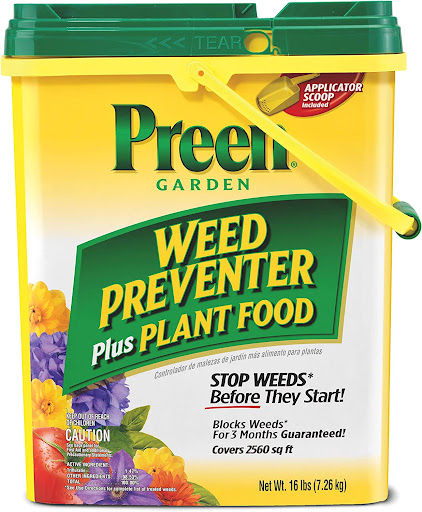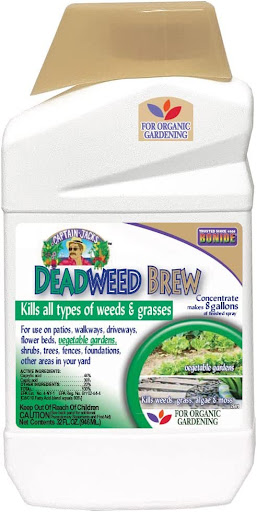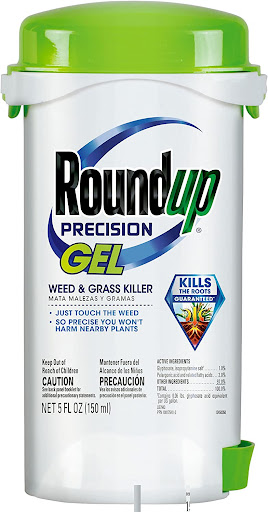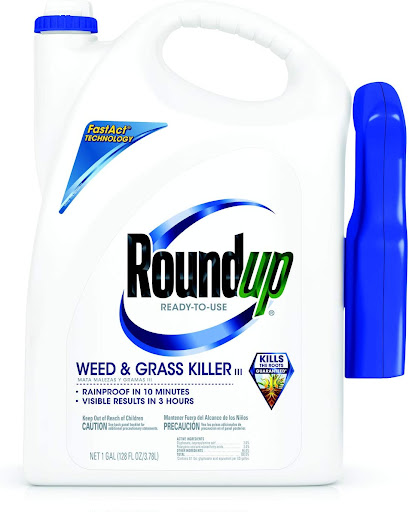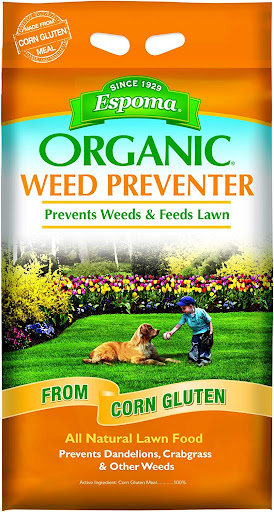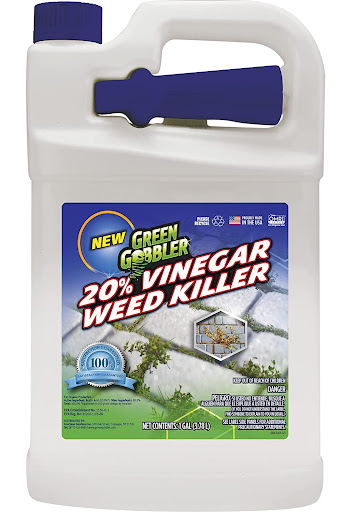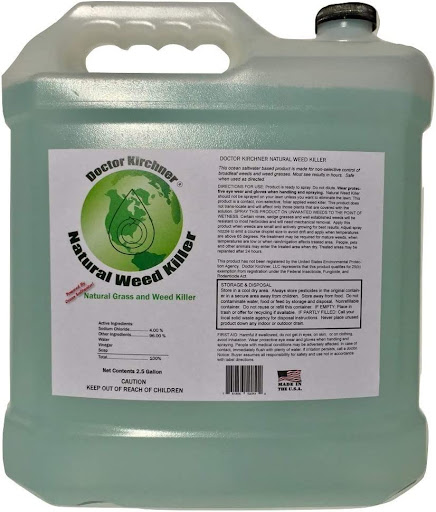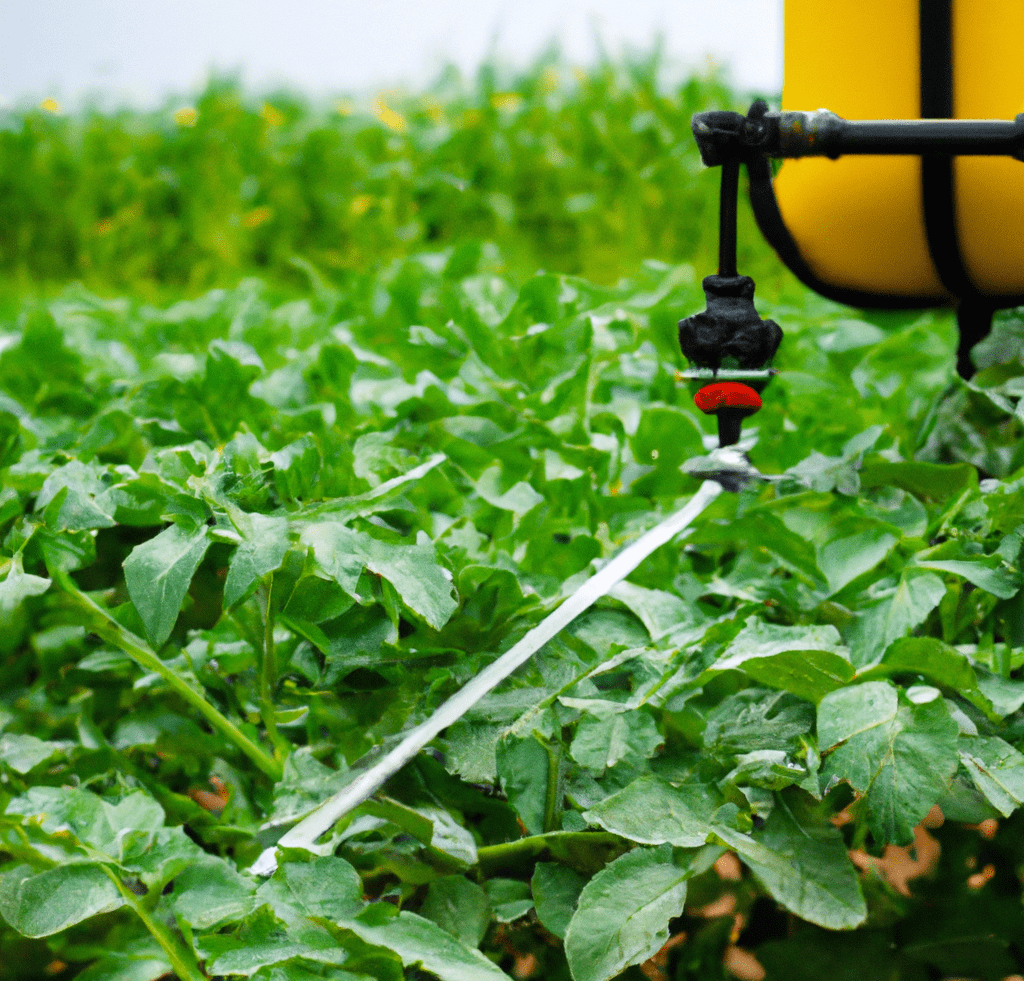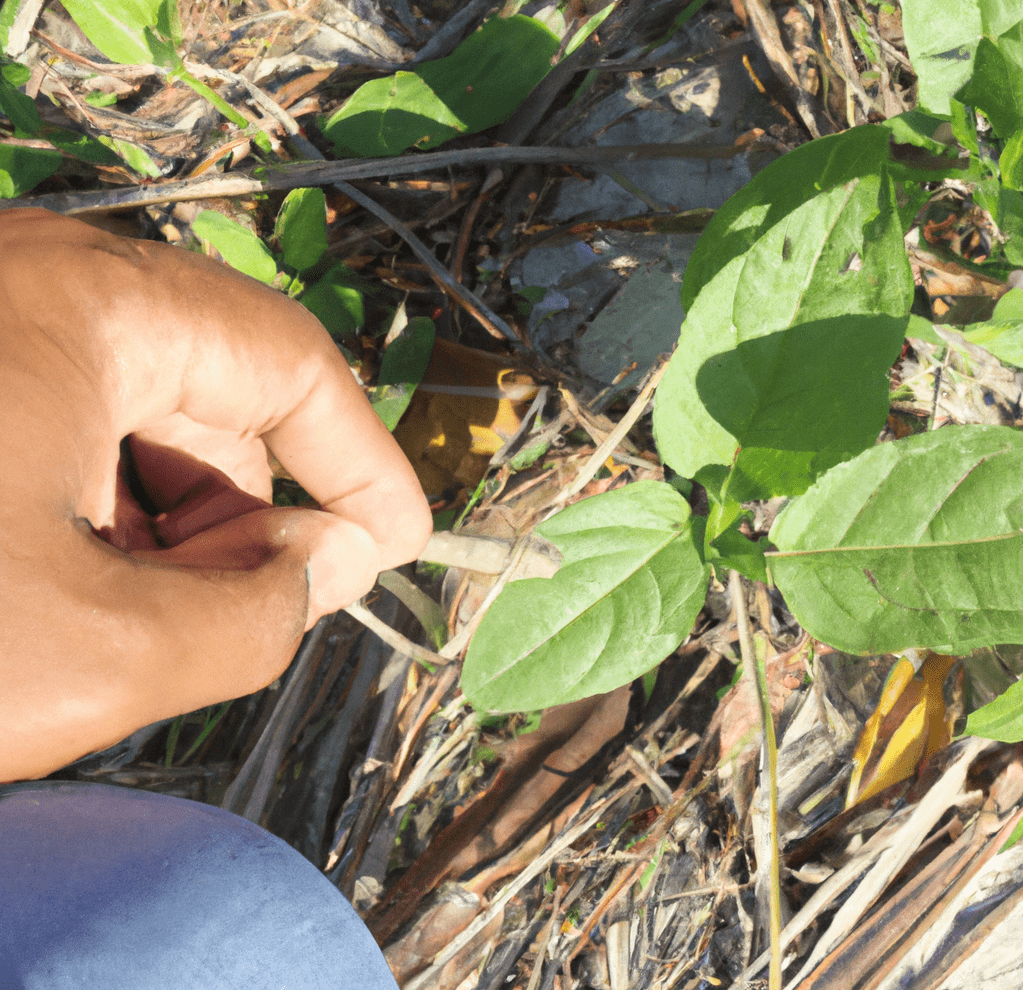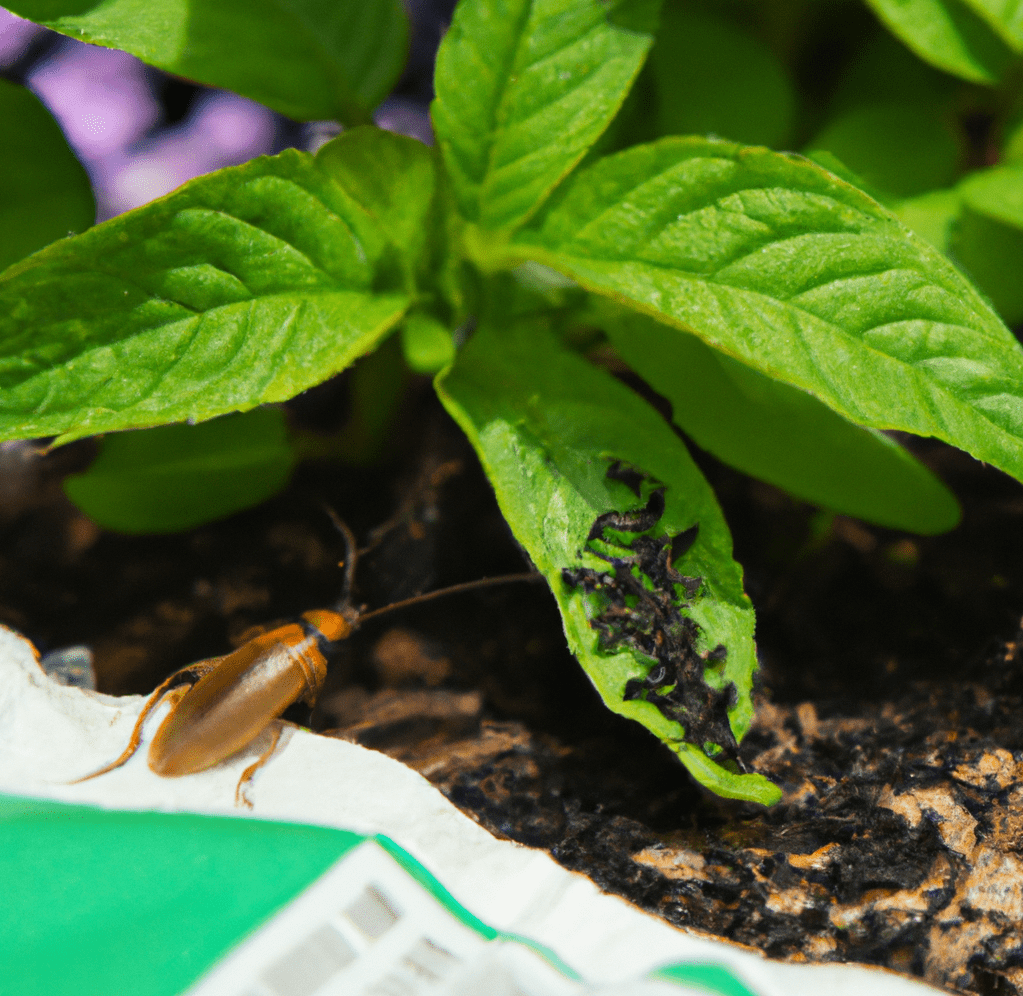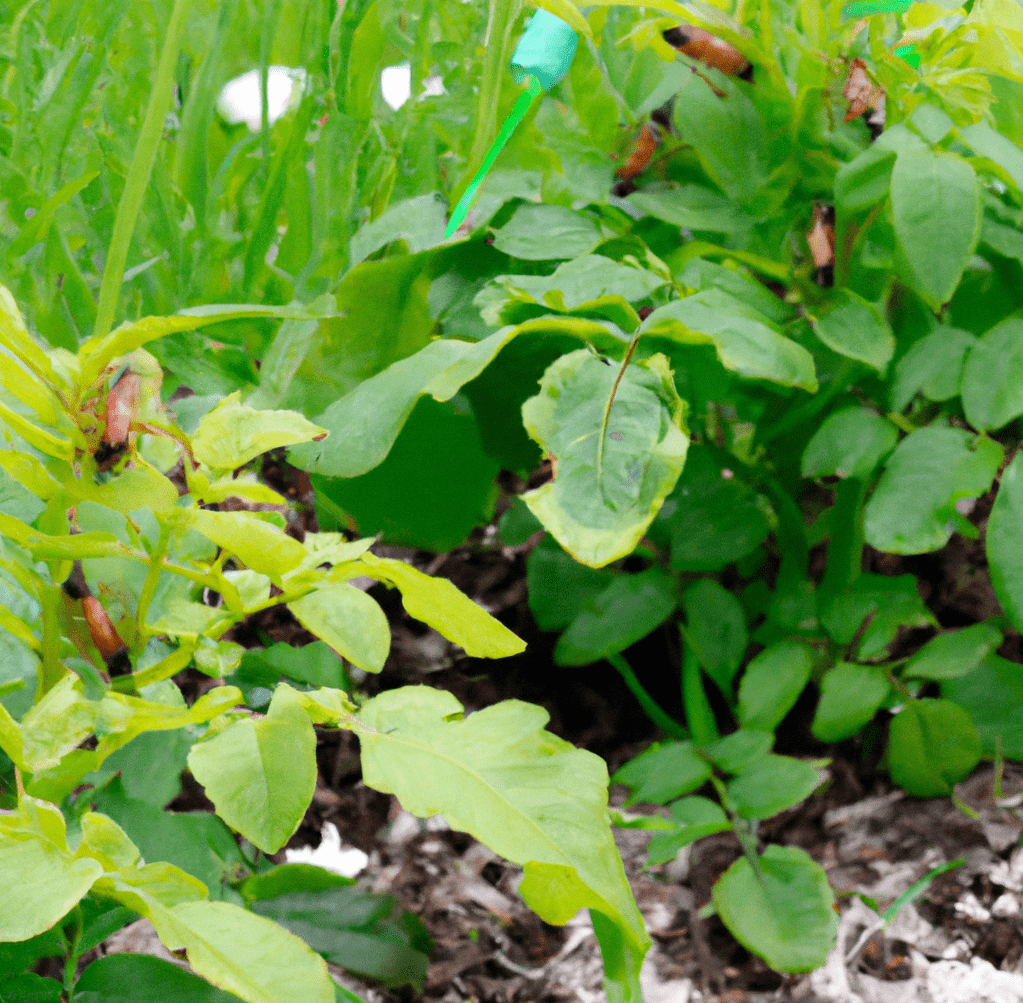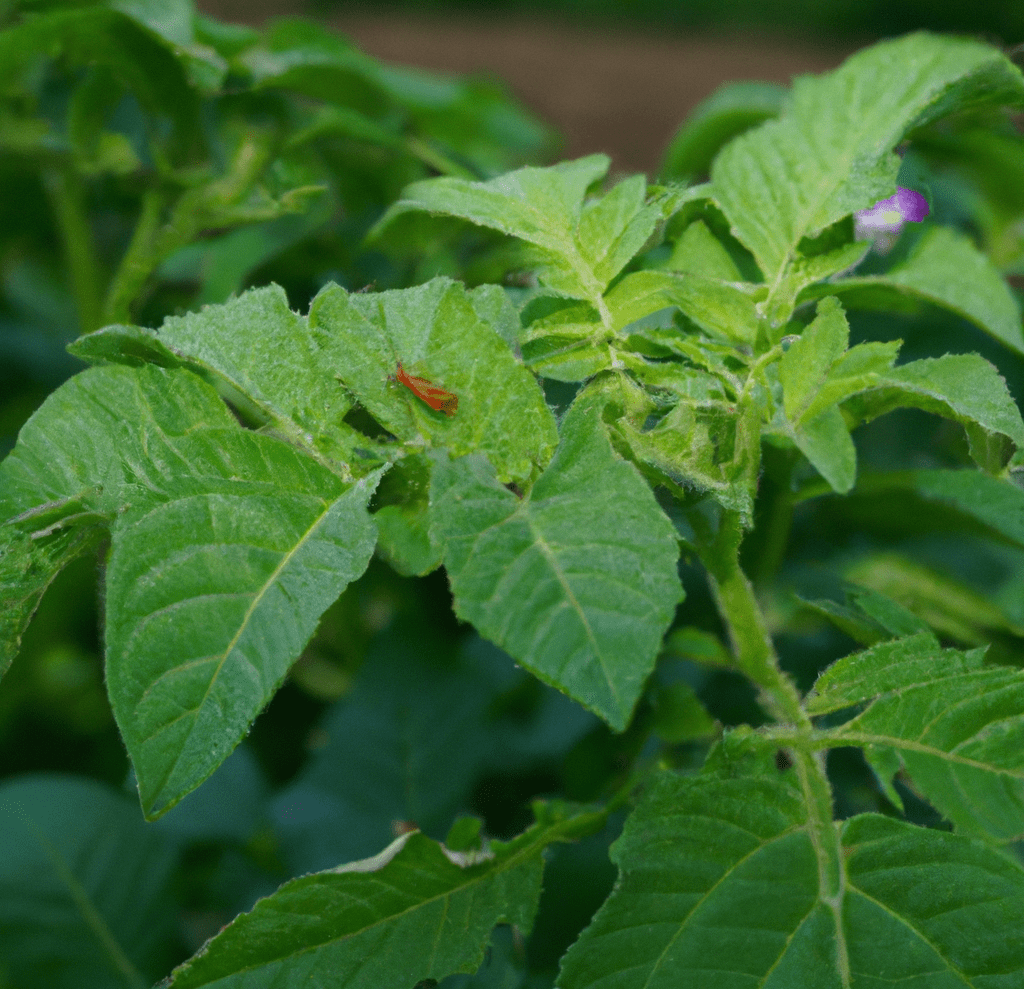Your garden’s flower beds add color and joy, but maintaining them calls for planning, patience, and skill. When it comes to the best weed killer for flower beds, you must utilize them correctly. Or, you are at risk of losing all the time and effort you put into making your flower garden look fantastic.
If you’re proud of your garden, you would want to understand exactly what goes into it. To protect your flower beds early on from rampant weed growth that could paralyze or stunt the growth of other plants, you must invest in a quality weed control solution. Otherwise, your existing plants may dry out and die eventually.
To know more about the best weed killer for flower beds, follow our extensive gardening guides. In this article, we will discuss the top picks for the best weed killers for flower beds and the factors you should consider before purchasing them. Let’s dive in!
Top Picks for the Best Weed Killer for Flower Beds
- 1. Best Choice - Preen Plus Plant Food Garden Weed Preventer
- 2. Editor's Choice - Bonide Organic Weed & Grass Killer
- 3. Best Overall - RoundUp Precision Gel Weed & Grass Killer
Jump to Section
1. Preen Plus Plant Food Garden Weed Preventer
Preen weed killer is a top quality solution for all your rampant weed growth problems. It offers a six-month warranty against weed growth. By using this pre-emergent weed killer, you won’t have to stress about manually pulling out weeds.
You don’t need to already have a push-spreader because the container’s top functions as an applicator. You apply it after mulching, and either wait for rain to fall or water the granules.
Preen will prevent weeds without harming the development of the flowers.
Preen’s guided formula can be used around over 600 perennial plants, groundcovers, and other things as mentioned on the product label, and it can be administered over a huge area.
It can be used straight from the bottle. This isn’t too much of an issue considering the lightest choice weighs just under 5 pounds. To avoid carrying a 21-pound bottle just to use the cap, you might need to purchase a different applicator if you need to cover a larger area.
Additionally, keep in mind that Preen cannot be used near edible plants. Additionally, even though it can be used around flowers, flower seeds shouldn’t be exposed to it.
Applying the Preen Extended Control Weed Preventer after newly planted seeds have been mulched and before new weed growth produces the best results. However, you can use it whenever weeds are growing up if you didn’t use it in the early spring.
Extended Preening Control Up to twice a year, weed preventer can be used around established plants. The first application may be made at any time during the growing season—spring, summer, or fall.
A second seasonal spray can be made two to six months following the first application to continue weed protection.
2. Bonide Organic Weed & Grass Killer
Bonide Organic Weed & Grass Killer uses capric acid, a saturated lipid produced from coconut and palm essential oils. It kills grassy weeds and crabgrass by drying out the foliage. This concentrate, which comes in a quart-size bottle with a special measuring cup, can be combined with water to create up to 8 gallons of contact weed killer.
With no unpleasant smells, Captain Jack’s concentration eliminates numerous weeds over huge regions. It is effective in temperatures as low as 40 degrees Fahrenheit and can be used to control perennial broadleaf weeds, etc.
All its ingredients are plant-derived. Additionally, the formula does not corrode sprayer parts, however it does require to be mixed with some water before application.
3. RoundUp Precision Gel Weed & Grass Killer
This is a weed killer in the form of a gel. The RoundUp Precision Gel only kills what it touches and the rest of the wildlife is completely safe around it. It is also easy to use in narrow spaces that are otherwise harder to reach.
You can apply this weed-killing gel to individual plants but this can take some time and may also be more expensive than investing in a granular form of weed killer or liquid form
4. Roundup Ready-To-Use Weed & Grass Killer
Another reliable company is Roundup, and their liquid solution to kill weeds. This ready-to-use weed and grass killer kills weeds and undesirable grasses by attacking their roots. They state on their label that you can notice results three hours after spraying and that it becomes rainproof in ten minutes (I didn’t test in the rain).
The bottle has a trigger spray attached to it. The trigger spray, in contrast to the spoon and lid above, allows you to spray while standing straight as opposed to bending and scooping. Check to see if the trigger attachment is connected properly, and if not, get in touch with the manufacturer.
This RoundUp Weed Killer is strong and effective, which benefits weeds but hurts plants. If you spray anything in your garden other than the leaves you want dead, your flowers will perish. You shouldn’t have any issues if you apply it properly.
However, you might not want to apply it to a tiny garden because the spray might fly into the leaves of your developing bloom. This solution is also one of the best weed killers for driveways.
When weeds are actively growing, you can use Roundup Ready To Use Weed & Grass Killer. Spray only when the air is calm to avoid drifting into plants you want to protect.
5. Espoma Organic Weed Preventer
Espoma Organic Weed Preventer may be of interest to farmers and landscapers who have grown their flower beds and want to keep fresh weeds out. Corn gluten, a common natural pre-emergent herbicide, is a component of this non-selective granular formulation. Additionally, it is easy to use: In a flower garden, sprinkle the granules over the bare soil and then softly water the area to let them break down and form a barrier.
Sprinkle corn gluten over the dirt in the flower bed before covering it with ornamental mulch if you’re using it.
This organic product will work the same manner in a flower bed by helping to prevent weed seeds from sprouting, even though it is marketed and sold primarily to prevent weeds from growing in an established lawn. It will not kill existing weeds however. To use this organic product, those must be removed.
6. Green Gobbler 20% Vinegar Weed & Grass Killer
The Green Gobbler 20% Vinegar Weed & Grass Killer is a potent weed and grass killer that doesn’t include any chemicals. It has a high vinegar content, which prevents weeds from growing. The best part is that it doesn’t contain any bleach, phosphates, or other toxic chemicals that could harm the earth or the environment.
This natural weed killer comes in liquid form, making it simple to use a handheld sprayer or a garden sprayer with a pump. There is no need to dilute this liquid because it is full power. Take care to prevent desired flowers or grass from coming into contact with overspray. Large weeds may need to be reapplied in order to be entirely eliminated.
After applying Green Gobbler, refrain from watering the flowers with a sprinkler to prevent the solution from washing the weed’s leaves away. Use drip irrigation method when watering the plants whenever possible.
7. Doctor Kirchner Natural Weed & Grass Killer
Doctor Kirchner’s weed killer is ready to use from the bottle. It is also an all-natural weed killer. You can rest easy knowing that Doctor Kirchner’s is prepared from ocean seawater, commercial-grade, premium vinegar and soap.
This formula is very easy to apply. All you have to do is spray the weed killer into the undesirable plant’s leaves until they are damp. There is still more environmental safety to be had. Even the container for this weed killer is environmentally friendly. It uses less plastic than comparable products.
The acetic acid residue disappears quickly and has no negative effects on the health of the soil or groundwater. It is safe for aquatic life, pets, children, and animals like pollinators, according to their website.
You can apply this weed killer whenever there are apparent weeds. Anytime you notice weeds growing in cracks pavers, flower beds, etc., you can use it to effectively spot kill.
Things You Should know Before Buying the Best Weed Killer for Flower Beds
How to use weed killers for flower beds?
Plants absorb the powerful compounds in weed killers through their roots, leaves, and stems. Once fully absorbed, the weed roots die first
Soon after the weed killer is administered, you can notice how the leaves begin to exhibit spots, turn brown, and droop. You can directly apply the weed killer with one of our top picks for the best weed sprayers.
The majority of weeds shrivel up and die in three to seven days. The dead roots of these plants can be easily removed from your flower garden once they have dried out.
Different Forms of Weed Killers
Granulated weed killers
These are in the form of coarse grains and are used to sprinkle over larger areas. They can be sprinkled by hand or through a shaker can.
Liquid Weed Killers
These are the most effective weed killer solutions. You can spray them over your flower beds using a backpack sprayer or even attach the bottle to the hose reel and spray through it.
Powder Weed Killers
These are used to cover your flower beds with a layer of dust that protects against pest infestation. Powder weed killers work best for larger areas but can also be easily blown away with wind.
Gel Weed Killers
These come in thick gel form that can stick to the leaves of the weeds better than most liquid weed killers.
Factors to Consider When Choosing the Best Weed Killer for Flower Beds
Customers should think about a number of factors before selecting the best weed killer for flower beds. Does it harm the soil? Are the substances dangerous to both people and animals? Before choosing, these queries should be addressed.
If you are struggling with rampant weed growth in your garden, be sure to also check out our article on the best liquid weed killer for lawns.
Here are a few things buyers should think about when looking for a weed killer for flower beds.
Pre Emergent VS. Post Emergent Weed Killers
This distinction relates to whether the gardener wants to eradicate current weeds or try to stop them from sprouting out in the first place.
Applying a pre-emergent to the soil after the decorative plants have taken root is one of the most effective strategies to maintain flower beds free of weeds. Pre-emergents, including those produced by Preen, do not eradicate weeds that have already begun to develop. Instead, they create a soil barrier that stops weed seeds from germinating. However, if you intend to grow flower seeds, avoid using a pre-emergent because it will also prevent beneficial seeds from sprouting.
Post-emergent herbicides include both selective and nonselective weed killers because they are made to destroy already-existing plants. Additionally, post-emergent weed killers do not stop weeds from sprouting again.
Contact vs. Systemic Weed Killers
Nonselective herbicides can be systemic or contact-based and are made to kill all plants.
Spraying contact herbicides directly on the majority of the weed’s foliage as possible is recommended. This kills the plant by shocking it. Anyone using this kind of product should avoid using it on days when it is raining since rain has the potential to wash the herbicide off before it has a chance to work.
Spraying a systemic weed killer on a plant’s leaves causes it to be taken up by the foliage, which then travels via the stem to the roots and kills the plant. Although successful at eliminating weeds, a potential drawback is the possibility that the substance can travel to the roots of desirable plants and kill those as well.
Selective vs. Nonselective Weed Killers
There are two main categories of weed killers: selective and nonselective.
A selective weed killer does exactly what its name suggests: it exclusively kills certain kinds of weeds while leaving healthy, attractive plants alone.
Herbicides that are non selective weed killer solutions are made to destroy all plants, including weeds and flowers. It works great for eliminating weeds in a garden before planting attractive flowers there.
Invasive weeds can be stopped from expanding into a flower bed by using it at the edge of the bed. It is important to take precautions to prevent desired plants and flowers from coming into touch with nonselective herbicides.
FAQs about the Best Weed Killer for Flower Beds
Are natural weed killers safe to use if you have pets?
Yes, natural weed killers are safe to use if you have pets. The right weed killer doesn’t just kill weeds but also protects flora, fauna, and other creatures around it. Chemical weed killers aren’t always safe around pets so remember to always check the label first.
What is the greatest benefit of using weed killers for flower beds?
The greatest benefit of using weed killers for flower beds is saving essential nutrients for the flower bed. Unwanted weeds compete with beautiful plants for the essential nutrients they require to grow big, vibrant blooms. A flower bed that is free of weeds enhances the beauty of your backyard.
What time of year should you spray weed killer on your flower beds?
You should spray weed killer on your flower beds during springtime and early summer months. Make sure it isn’t during the rainy season as it can wash away the solution for killing weeds.
Bottom Line on the Best Weed Killers for Invasive Plants in Your Flower Beds
Our first pick for this list is undoubtedly the Preen Plus Plant Food Garden Weed Preventer which works best against rampant weed growth. It is a pre-emergent weed killer for invasive plants.
The second pick on this list is the Bonide Organic Weed & Grass Killer. It uses capric acid to eliminate a range of weeds like broadleaf crabgrass. It is a highly concentrated formula for quick results.
The third best choice is the RoundUp Precision Gel Weed & Grass Killer. This comes in a gel form and kills anything it touches and nothing beyond that so your precious plants are always safe!

Abigail Clemente
To say that Abigail is passionate about gardening and landscaping would be an understatement. Abigail came to Your House Your Garden team with an already exceptional portfolio as an experienced writer.

Abigail Clemente
To say that Abigail is passionate about gardening and landscaping would be an understatement. Abigail came to Your House Your Garden team with an already exceptional portfolio as an experienced writer.

